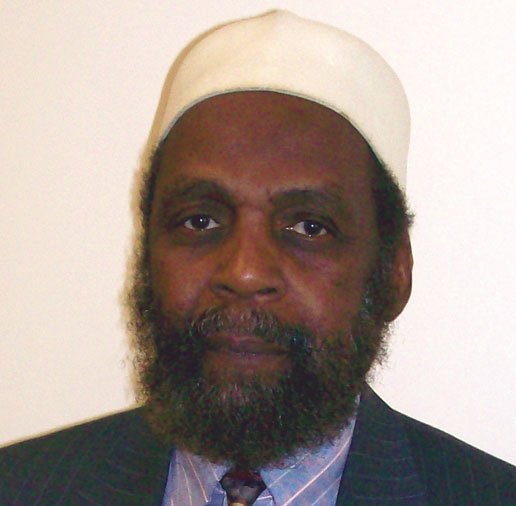”
Jihad
”
(an Arabic word often translated as
”
holy war
”
) is an emotion-laden term.
It brings up images of the burning twin towers in New York
City and the ominous visage of Osama bin Laden.
“Jihad” (an Arabic word often translated as “holy war”) is an emotion-laden term. It brings up images of the burning twin towers in New York City and the ominous visage of Osama bin Laden. And, apparently, this is one legitimate historical aspect of the concept as it has been used to justify violence toward others: “killing non-Muslims with the sword, extinguishing the fire of Hinduism in the Indian subcontinent, murdering Christian neighbors,” as was explained recently.
On May 19, a speaker appeared at the Morgan Hill Community and Cultural Center to present a free address to the public. Abdur-Raqueeb Wali, representing the Ahmadiyya Muslim Community, explained another understanding of this fearsome word, one not so often publicized in the American media.
Wali was born in Philadelphia and grew up in Boston. He is a graduate of Brandeis University, where he majored in Mediterranean Studies, learning the Arabic language at that time. He converted to Islam 50 years ago and moved to California in 1977 because he hated the cold weather on the East Coast.
Currently he is the Muslim Chaplain at Chowchilla Women’s Prison and teaches English as a Second Language at Merced College.
The concept of jihad is much more complex than we are normally led to believe. Although the word is used many times in the Qu’ran (Koran), it usually refers to a “struggle,” often internal within the believer:
– to be a good, peaceful person
– to try to bring people to God
– to fight when someone tries to deter you from following you religion.
According to Wali, Muhammad laid down the principal of religious freedom: “There should be no compulsion in religion. Religious war can only be waged against people who seek to convert others away from Islam by force. War cannot be fought to harm religion, only to promote religious freedom.”
The common idea of Muslims forcing conversion of others exists because many Muslims “have misrepresented the Prophet, projecting a wrong image. Muhammad was a man of compassion and forgiveness who set down rules of war forbidding his followers from harming women, children, places of worship, even trees.”
“Guns cannot change hearts, Muhammad taught, and it is a sin to convert people with fear.” Wali reiterated that the public’s misunderstanding of “jihad” is the responsibility of some Muslims to have misused Islam for their own desires. Since there is no central leader of the world’s Muslims, and no official spokesman exists, each country and culture practices the faith in its own way. Unfortunately, “the press doesn’t publicize Muslims who work for peace and reconciliation.”
Ahmadiyya is a denomination of Islam based in the United Kingdom and practiced by some 200 million believers in 180 countries. It was established by Hadhrat Mirza Ghulam Ahmad (1835-1908) in the Punjab area of India. He claimed to be “the expected reformer of latter days, the Awaited One of the world community of religions. His message was peace, universal brotherhood and submission to the will of God.”
This movement emphasizes aspects of Islam which non-Muslims rarely hear about: “interfaith dialogue, peace, tolerance, love and understanding among followers of different faiths.” It firmly believes in and acts upon the Qu’ran’s teaching: “There is no compulsion in religion.” And it rejects violence and terrorism in any form for any reason.
This lecture is one of a series presented by the Ahmadiyya Community. According to Iman Irshad Malhi, guests are always welcome to stay after for a wide-ranging and good-natured discussion and to enjoy refreshments. For more information call (408) 204-4740 or on the Internet at www.alislam.org.
Chuck Flagg teaches English at Mt. Madonna High School. Write to him at P.O. Box 22365, Gilroy, CA 95021.













